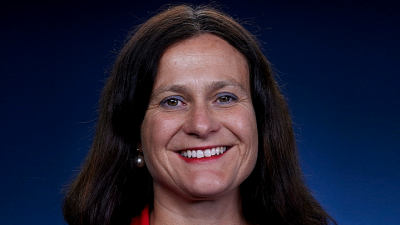By Tony Moran
• Millions of patients around the world have had their surgery delayed because of coronavirus
• Surgery for conditions such as cancer must continue despite the threat of a second wave
• 'COVID-19 free' hospital areas can be set-up to allow surgery to proceed safely, even when community infection rates are high
• Governments around the world must invest in setting up 'COVID-19 free' hospital areas to protect patients
Setting up 'COVID-19 free' hospital areas for surgical patients could save lives during the second wave of the pandemic – reducing the risk of death from lung infections associated with coronavirus, a new global study reveals.
Researchers working together around the world found that that patients who had their operation and hospital care in 'COVID-19 free' areas had better outcomes. 'COVID-19 free' areas improved the safety of surgery by having a strict policy that no patients treated for COVID-19 were mixed with those undergoing surgery. 'COVID-19 free areas' were set up both in smaller independent hospitals and large hospitals with emergency departments.
For fear that patients may contract COVID-19 in hospital, millions of operations around the world were canceled during the first wave of the pandemic. Professor Dr. April Camilla Roslani, President of the College of Surgeons, Academy of Medicine of Malaysia, said, 'As many parts of the world, including Malaysia, face a resurgence of the pandemic, more patients will face delays. When operations for cancer and other time-dependent conditions are delayed, patients may progress to a point where they are surgically untreatable.'
This research has shown, for the first time, that hospitals around the world can continue safe surgery by setting up COVID-19 free areas to minimize the risk from the coronavirus.
Researchers examined data from 9171 patients in 55 countries, across 5 different continents from the start of the pandemic up until the middle of April 2020. Experts have discovered that pulmonary complications (2.2% vs 4.9%) and rates of death after surgery (0.7% vs 1.7%) were lower for patients who had their hospital treatment in 'COVID-19 free' areas. However, in this study, just 27% of patients had their care in these protected areas.
It is estimated that in Malaysia, around 180,000 operations a year are for removal of a cancer.
Setting up COVID-19 free hospital areas could prevent 1800 unnecessary COVID-related deaths after cancer surgery in the UK alone over the next year.
Led by researchers at the University of Birmingham, the COVIDSurg Collaborative comprises of experts from over 130 countries, including Malaysia. The group has published its findings today in the Journal of Clinical Oncology, which is a leading global cancer research journal.
Collaborative lead Dr. Aneel Bhangu, from the NIHR Global Health Research Unit on Global Surgery, at the University of Birmingham, commented: "As health providers restart elective cancer surgery, they must look to protect cancer surgery patients from harm by investing in dedicated COVID-19 free hospital areas. These can be tailored to the resources available locally, ensuring that patients treated for COVID-19 are not mixed with patients needing surgery."
"However, this represents a significant challenge to many hospitals around the world. Governments and hospital providers must help to fund this major international redesign of surgical services and provide protection for patients. COVID-19 free areas could save many lives during future waves, by allowing surgery to continue safely despite high rates of infection in the community."
According to Professor April, "During the first wave in Malaysia, designation of COVID hospitals, and hybrid COVID hospitals with COVID-free areas, enabled isolation of affected patients, and safe resumption of elective cancer surgeries without excessive delay.
Nevertheless, we must remain vigilant and maintain best practices in light of the recent surge.
Re-training in protocols, and procurement of adequate testing facilities and effective protective equipment should be done in a pro-active, rather than reactive way."
The study was funded by a National Institute for Health Research (NIHR) Global Health Research Unit Grant. It covered adult patients undergoing elective surgery with curative intent for a range of suspected cancers including bowel, gullet, stomach, head and neck, lung, liver, pancreas, bladder, prostate, kidney, womb, cervix, ovarian, breast, sarcoma and brain tumors.
Dr. James Glasbey, the study lead at the University of Birmingham, commented: "Major reorganization of hospital services to provide COVID-19 free areas for elective surgery must be justified by evidence like this, as it redirects time and resources away from other services.
We have proved that those efforts are essential in protecting patients undergoing surgery during the pandemic."
"Our data showed that COVID-19 free hospital areas were beneficial when the rate of infection in the community was both low and high. We recommend that COVID-19 free areas are setup in all countries currently affected by the pandemic, including those likely to suffer from future waves."
"However, overcoming the challenges of setting up such pathways, including separate hospitals to provide elective surgery, may lead to unintended consequences. Consequences for hospitals must be carefully monitored to achieve the best balance of healthcare for patients."
Data included in this study represented a wide variety of different surgeries for patients of all ages, genders and ethnicities.
(Tony Moran is International Communications Manager at the University of Birmingham, U.K.)
ADVERTISEMENT
ADVERTISEMENT


































